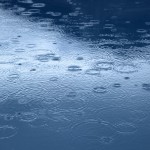Rainwater collection in Massachusetts yields traces of radiation
A rainwater collection sample taken during the past week in the U.S. state of Massachusetts was found positive for scant levels of radiation, health authorities confirmed today.
The discovery of increased amounts of radiation in several states has raised fears that the radiation from Japan's damaged nuclear power plant has reached dangerous levels and had spread as far as the United States.
Radioiodine-131 was found in one out of 100 rainwater collection samples being taken by the U.S. Environmental Protection Agency, but health officials said the water supply in Massachusetts is still safe to drink. Authorities in California and Nevada have also tried to reassure the public that the radiation levels detected in those states pose no threat to human health.
Massachusetts officials said that similar rainwater collection in Pennsylvania, California, Washington and other western states also yielded low levels of radiation. Samples from the Wachusett and Quabbin water reservoirs in Massachusetts were tested negative for radiation last week.
The Department of Environmental Protection will be collecting water samples from bodies of water across the state over the next few days to monitor the spread and levels of radiation.
Japan's nuclear crisis has worsened with Japanese authorities confirming alarming levels of radiation in the damaged nuclear reactor and the sea adjacent to the plant. A partial meltdown is feared as workers scramble to restart failed cooling systems.
Neighboring countries in Asia and other countries have imposed either a ban or import restrictions on Japanese food because of fears of radioactive contamination. Evidence of the spread of radiation to as far as the U.S. has been proven by the radioactive rainwater collection samples.
